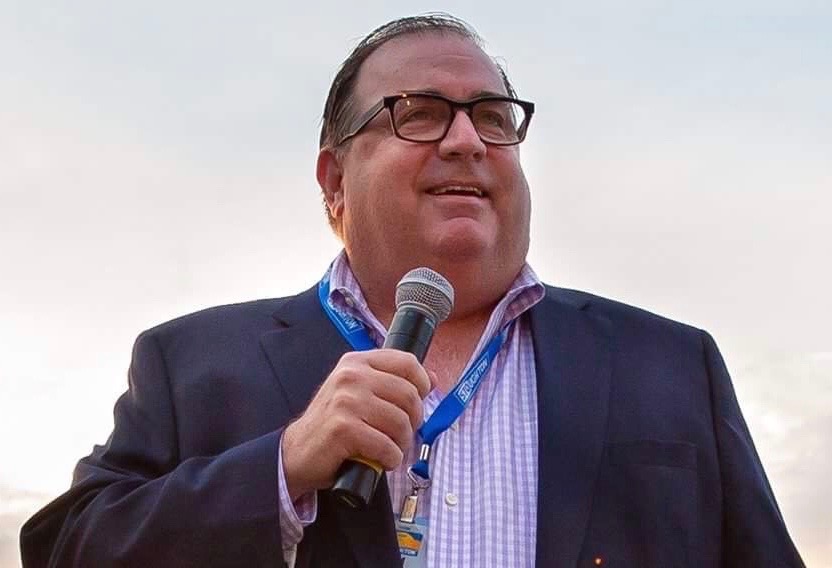The state withdraws from a vital youth health survey. Plus, easier access to fentanyl test strips, and recent industry moves
By Mark Mravic and Dulcie Ulloa
New & Next: Policy
Florida Pulls Out of CDC Teen Health Survey
Facing a nationwide crisis in youth mental health, Florida has decided to close its eyes and cover its ears. Last month the state’s Department of Education abruptly withdrew from the national Youth Risk Behavior Survey (YRBS), a biannual overview of the physical and mental health of American teens. Administered by the Centers for Disease Control and Prevention (CDC) since 1991, the YRBS monitors risk behaviors—often established at an early age—that lead to death, disability and social problems in youth and adults. The voluntary, anonymous survey asks 9th- to 12th-graders for information on:
- Behaviors that contribute to injury and violence
- Sexual behaviors related to unintended pregnancy and sexually transmitted diseases
- Alcohol, drug and tobacco use
- Unhealthy dietary behaviors
- Inadequate physical activity
The survey is broad in scope, ranging from questions about getting into fights, texting while driving and using indoor tanning devices to birth control, bullying and suicidal ideation. The data helps determine prevalence and trends in risk behaviors among teens, including sub-populations such as LGBTQ+ and people of color, to inform health policy decisions. The survey is also valuable for researchers and health advocates, as well as for school systems that are figuring out where to apply resources.
Florida has essentially said it doesn’t want to know about any of it. The decision to withdraw, taken with zero public or legislative input and no announcement, was conveyed by the CDC in an email to the Florida Policy Institute (FPI), a health advocacy organization, in mid-April. State officials have not explained the move, but the fact that the survey includes questions about sexual orientation and behavior and gender identity has prompted speculation that it’s tied up with the state’s so-called “Don’t Say Gay” bill and other initiatives that critics say target LGBTQ+ communities and efforts at gender and racial equity.
“The whole intention of the survey is to make good public health policy. If you don’t have the data, you can’t do that.”
—Norín Dollard, Florida Policy Institute, to the Orlando Sentinel
Four states—Washington, Oregon, Wyoming and Minnesota—did not participate in the 2019 survey, the latest for which results are available.
Florida’s withdrawal from the program has stunned and angered state health policy advocates. “The [CDC survey] is a longstanding, trusted source of data that lawmakers, advocates, state agencies and nonprofits have relied on over the years to identify trends in potentially harmful behavior among Florida’s youth,” Norín Dollard, a policy analyst with the FPI, told the Orlando Sentinel. “Without the survey, it is unclear how the state intends to analyze things like the prevalence of bullying and mental illness among teens. … The whole intention of the survey is to make good public health policy. If you don’t have the data, you can’t do that.”
Marni Stahlman, CEO of the Mental Health Association of Central Florida, told the Sentinel, “It’s an incredibly dangerous precedent to have set.”
Doctors, too, are troubled by the decision. “This is the worst time one could pick to do this,” Mobeen Rathore, MD, associate chair of the Department of Pediatrics at University of Florida-Jacksonville, said to Florida Public Radio. “This comes at a time when it is more important than ever to have this sort of data for the health and well-being of our young people. … If you want to not know about things and act like an ostrich, this is perfect not to do the survey.”
The Florida Policy Institute has called on the state to “take immediate action to reverse this decision and continue participation in this critical public health data collection.”
New & Next: Community
Making Access to Fentanyl Testing Strips Easier
Faced with soaring fentanyl overdoses and sluggish response, one grassroots group is taking things into its own hands. FentCheck, a harm reduction nonprofit, has begun distributing fentanyl testing strips in bars and restaurants in the Bay Area, as well as New York, Philadelphia and Portland, Ore., according to Reuters. Co-founders Alison Heller and Dean Shold and their team attach the testing strips, from the Canadian company BTNX, to practical instructions for their use, and, with the approval of proprietors, place them in restrooms or leave them at the bar. Heller advocates for the strips as a harm reduction measure. “We’re done with dead kids,” she told Reuters. “We’re done with accidental overdoses. We are also serving people who are struggling with drug addiction. They cannot make it to rehab, they cannot make it to the next step in their sobriety, if they die that night.”
New & Next: People
Spectrum Health Adds Trio
Spectrum Health Systems, the largest addiction care provider in Massachusetts, announced three additions to its leadership team, as it expands to meet the growing need for substance use treatment and recovery in the state. The new hires and their roles are:
- Christina Cronin, executive director of integrated care. Cronin will lead Spectrum’s value-based care and population health programming. She has been a member of the Taunton (Mass.) Community Crisis Intervention Team and has 15 years of experience in clinical social work and health care administration.
- George Timmons, community relations manager. Timmons will implement marketing and business development plans for the New England Recovery Center, a Spectrum subsidiary that provides detox and inpatient treatment to commercially insured and private-pay clients. He will also represent the center at local conferences and events. He was previously the program director at the Washburn House in Worcester, Mass.
- James Luks, controller. Luks will manage Spectrum’s fiscal reporting, tax filings and compliance functions. He comes over from Sevita Health Care, where he had been director of accounting.
New & Next: Education
“Beware of Benzos” Workshop
On May 17 from 8:30 a.m. to 1 p.m. MT, Soberman’s Estate and Gallus Medical Detox will host a CE event on the long-term consequences of benzodiazepines, “Beware of Benzos: A Path to Recovery,” at the Soberman’s Estate facility in Cave Creek, Ariz., outside Phoenix. The workshop will be led by Steve Carleton, LCSW, CACII, executive clinical director for Gallus Medical Detox Centers in Littleton, Colo., and an adjunct professor at the University of Denver’s Graduate School of Social Work. Goals include reviewing the mechanisms of benzodiazepenes, recognizing the risks involved in their long-term use to treat anxiety and depression, and exploring paths to recovery. Register here.
Photo: Paulette Vautour













